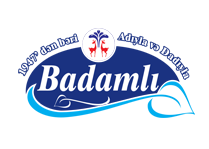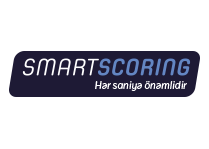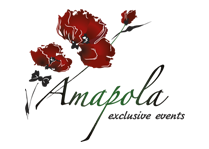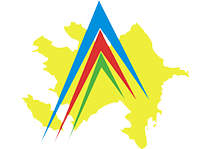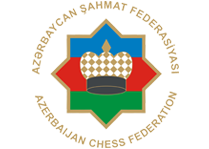Instructions
Instructions for the Baku Olympiad Match Arbiters
Dear Colleagues,
As you know the Arbiters are the connecting link between the organizer and the players of a tournament.
They have not only to control the games, but also to ensure the best conditions for the players, so that will not be disturbed and will be able to play without any problem. So they have to take care about the playing area, the equipment, the environment and the whole playing venue.
Finally they have to avoid any cheating by the players.
The general duties of the Arbiters in any competition are according to the Laws of Chess (art. 12.1, 12.2, 12.3):
a.They shall see that the Laws of Chess are strictly observed.
b. They shall ensure fair play. It means that they also must take care so that to avoid any cheating by the players.
c. They shall act in the best interest of the competition. They should ensure that a good playing environment is maintained and that the players are not disturbed. They shall supervise the progress of their match.
d. They shall observe the games, especially when the players are short of time, enforce decisions they have made and impose penalties on players where appropriate.
In order to do all these, the Arbiters shall have the necessary competence, sound judgment and absolute objectivity (Preface of the Laws of Chess).
Particularly in an Olympiad, where every Arbiter will have only one match, i.e. just four (4) games, to control, we can consider the following general instructions as important for the Match Arbiters:
1. To show proper behavior to the players, captains and spectators and to be respectful and dignified.
They shall avoid any dispute during the games and take care of the good image of the tournament.
2.To observe all four games of their match during every round of the competition.
They have to take care of the match that they are responsible, to observe and to check the games’ progress (especially when there is time trouble). It is not acceptable for the Arbiters to leave the playing area every 10 or 15 minutes for smoking or for any discussions with other Arbiters, spectators, officials, or other persons, or to leave their match unattended in order to go and watch other games in another part of the playing hall. It is not acceptable for the Arbiters to stay seated in their chairs reading newspapers or books (even chess books!), leaving their games without observation. It is also not acceptable for the Arbiters to speak on their mobiles in the playing hall during the games. The Law of Chess regarding the mobile phones is valid not only for the players, captains and spectators, but for the Arbiters as well. The use of a mobile phone is strictly forbidden in the playing hall during the round.
It is sure that the biggest problems during the games are caused because of the absence or the lack of attention of the Arbiters and thus the ignorance of what actually happened in case of an incident. How an absent Arbiter will take a fair decision in a dispute between two players caused because of a touched piece (i.e. the opponents do not agree that the player said “j’adoube” in advance)? Without knowing what actually happened, the Arbiter has 50% possibilities to take a correct decision and 50% to take a wrong one, losing by this way his credibility and the trust of the players.
Of course the Arbiters are human beings and they may make mistakes, but they have to try as much as they can to avoid such problems.
3. To show responsibility in executing their duties.
The correct time of arriving in the playing hall before the start of the round and the following of the Chief Arbiter’s, the Deputy Chief Arbiter’s and the Sector Arbiter’s instructions are parameters that help the smooth running of the tournament.
4. To show team spirit and cooperate in the best way with the other Arbiters of the Olympiad.
The Arbiter’s job in a competition is mainly a team work and the Arbiters shall help and cover each other in any case, so that to avoid, if possible, any problem that arises during the games. The Arbiter has to ask for consultation by the Sector Arbiter, or the Deputy Chief Arbiter, or the Chief Arbiter in any case when he does not feel ready to take an important decision regarding the games he observes.
5.To study the regulations and be updated for any changes of the laws of chess and the tournament rules.
As the new Laws of Chess are in effect from 1 July 2014, you are expected to have been informed about all changes and additions and to be ready to apply them any time you have to take a decision immediately when it is needed. The players cannot wait for a long time and the game has to be continued.
6. To have excellent knowledge of handling the electronic clocks.
It is not acceptable for an Arbiter to let the players waiting for a long time, while trying to fix an electronic clock with wrong time indications during a game, or when they need to add time, in case of an illegal move, or a wrong draw claim.
7. To follow the dress code.
The Arbiters of a competition shall be dressed properly, helping to the increase of the image of chess as a sport.
8. To be able to communicate with the players, captains, other arbiters, officials in at least one FIDE official language.
General duties of the Baku Match Arbiters
The following general duties are referred to the Baku Olympiad Match Arbiters :
A. Before the start of the games
a. The Match Arbiters should arrive at the playing hall at least one (1) hour before the start of every round. For the first round of the tournament they have to arrive at least two (2) hours before the start of the round.
As the accommodation of the Match Arbiters will be (according to the Organizers) in a Hotel 7.7 km far from the playing hall and it will take about fifteen (15) minutes to reach the playing hall by the buses provided by the Organizers, the Match Arbiters have to be very careful not to miss the bus.
b. The whole playing venue (playing hall, toilets, smoking area, analysis room, bar, etc.) and the technical conditions (light, ventilation, air-condition, enough space for the players, etc.) has to be checked carefully before arrival of players or spectators.
c. Receive from the Sector Arbiters the results sheet, the Match Protocols sheet and score sheets for the match. Put the Match Protocol sheet on the announcement board of the match. Be very careful when putting the “mirror” Match Protocol on the other side of the announcement board, in order to be relevant with the positions in the tables for the players of the teams.
d. Check of the equipment (chessboards, pieces, score sheets, pens).
e. Arrange the tables, chairs, ropes for the playing area, name plates for the players and flags of federations, if needed, or table numbers.
f. Check of the electronic clocks, the correct setting of the time control, check of batteries and the correct placement of the clocks.
g. The Arbiters will have their own table with a chair. They have to seat not very close to the tables of the players, in order to avoid disturbing them. The Captains’ chairs will be in the right and left of the Arbiter, in the same side and in a distance from their teams.
h. Everything must be ready before the arrival of the players, at least half an hour before the start of the round.
i. Check if the players have been seated according to the match protocol and have the correct colors.
j. Check if all players of both teams are present. Zero Tolerance Rule will not be in effect and the default time will be fifteen (15) minutes. Immediately inform the Sector Arbiter if any player is not present after the 15 minutes from the start of the round passed. It should be done every effort to avoid any forfeit of any player.
k. Have in mind where you can find spare clocks (usually they will be spare clocks on the tables of the Sector Arbiters), in case one or more clocks of the match are not working properly.
B. During the games
a. Immediately after the start of the round check if the four (4) clocks are working properly.
b. Check the electronic clocks regularly by using the time control sheets (every thirty minutes) and of the score sheets and the number of moves written by the players.
c. Check the players discretely, if they are leaving the playing area for an unusual number of times, for their contact with other players, captains, spectators and other persons. The players are not allowed to leave the playing venue without informing the Arbiter. Inform the Sector Arbiter accordingly.
d. Observe and control all four (4) games of the match, especially when there is time trouble, with the help of an assistant, if needed. Inform the Sector Arbiter accordingly.
e. Carefully check draw claims by the players (in the provided area), together with the Sector Arbiter, if needed, before taking any decision. While checking such claims, inform the neighbor Arbiters so that they will attend the rest of your games until your return.
f. As in the regulations exist a draw restriction rule for 30 moves (No draw offer or agreement between the players is allowed before the player with black pieces have completed 30 moves), when receiving score sheets with a result as a draw, check immediately the number of moves written in both score sheets and if they are less than 30, ask players about the way of the draw the game was decided.
If the draw was after agreement (draw offer), the players must be informed that they must continue the game until they both complete 30 moves, in order to avoid to be forfeited for violation of the rule of the draw restriction before 30 moves.
If the draw is according to the rule of the three fold repetition, the Arbiter must check the claim that should have been submitted by the players before signing the score sheets and explain to them the correct procedure (first make a claim to the Arbiter and if after checking it would be found to be correct, then sign the score sheets as a draw).
The Match Arbiter must do every effort to avoid any forfeit of the players.
f. At the end of the game check the recorded result by both players, before they leave their table and check the score sheets to be signed by both players. The result must have been written by the players and not by the Arbiter.
g. After the end of each game put the Kings in the middle squares of the chess board, indicating the result of the game. Kings in the central white squares (e4, d5) mean 1-0. Kings in the central black squares (e5, d4) mean 0-1. Kings in the central white and black squares (e4, e5) mean draw. Be very careful, in order to indicate the correct result.
h. Update the results sheet and the Match Protocol on the board by recording the result of every finished game.
i. Don’t fix the pieces on the chess board of a finished game before the end of all games of the match, in order to avoid disturbing the players who continue their games.
j. In case of any incident inform immediately the Sector Arbiter, the Deputy Chief Arbiter and the Chief Arbiter.
k. When going to the toilette, to the smoking area or to the bar area, don’t leave your games unattended. Ask the neighbor Arbiters to attend your games until your return. Do the same in case you will be asked.
l. Inform the Captains, always with a polite manner, that they have to stand in the back of their players, in order to avoid any eye contact between the players and their Captains. The same shall be for the players who continue or have just finished their games.
m. When a player wants to speak with his Captain, the Match Arbiter must be always present and listen to the conversation, which must be in a language that the Arbiter understands.
C. After the end of the match
a. Carefully check the results of all the games, by counterchecking of the score sheets and the results sheet.
b. Ask the Captains to sign the results sheet (match protocol) before they leave the playing hall. In case the captain is not present, ask the player who finished last his game to sign.
c. Write all results in the Match protocol on the announcement board of the match, arrange all chess boards and the other equipment (pieces, score sheets, pens, clocks), to be ready for the next round.
d. Forward the result sheet and all score sheets of the games to the Sector Arbiter. You may need to help in other matches. You will leave the playing venue only after his permission.
The Chief Arbiter is responsible for the full control of the competition and for the correct application of the Laws of Chess and the Competition Rules. He shall take care of all technical matters and ensure the best conditions for the players. He has to manage the available arbiters and volunteers and assigns their duties and responsibilities, in cooperation with the Deputy Chief Arbiters and the Sector Arbiters. He is responsible for the smooth running of the competition and he has the responsibility of taking decisions in every case or incident during the games. He has to try to settle all arising disputes before they are forwarded to the Appeals Commission.
Only in his absence these responsibilities go to the Deputy Chief Arbiters, or to Sector Arbiters.
The successful arbitration during the games plays a very significant role in the success of the event.
We hope to see you all in Baku.
Chief Arbiter - IA Faik Hasanov Tournament Director - IA Takis Nikolopoulos










